On August 7, 2023, the second "Future-oriented Traffic Control System" academic seminar was successfully held in A102 Tongda Hall.
The seminar invited four special guests, namely Prof. Luo Kangjin, Dean of the School of Engineering, Hong Kong University of Science and Technology; Prof. Wang Dianhai, Director of the Intelligent Transportation Research Institute, Zhejiang University; Prof. Guan Jizheng, Vice Chairman of the China Intelligent Transportation Association; and Dr. Hua Jingyi, Associate Researcher of the Traffic Management Science Research Institute, Ministry of Public Security. In addition, many well-known experts in the industry were invited, including Dr. Nie Xiaojian, Chief scientist of Baidu Intelligent Transportation, Dr. Song Zheng, General manager of Tencent Intelligent Transportation City and network industry, Dr. Ma Xiaolong, Vice President of Qingdao Hisense Network Technology Co., LTD., Dr. Xiang Junping, general manager of Smart City Division of Lianyungang Jeri Electronics Co., LTD., Dr. Zhou Xiaopeng, Traffic Police Corps of Shanghai Public Security Bureau, Dr. Chen Ningning, General manager of Guangdong Zhenye Superior Control Technology Co., LTD., Dr. Zheng Jianfeng, Transportation Research Institute of Xiongan National Technology Innovation Center, Dr. Wu Jiahui, Hong Kong University of Science and Technology, etc. The seminar was chaired by Professor Ma Wanjing.
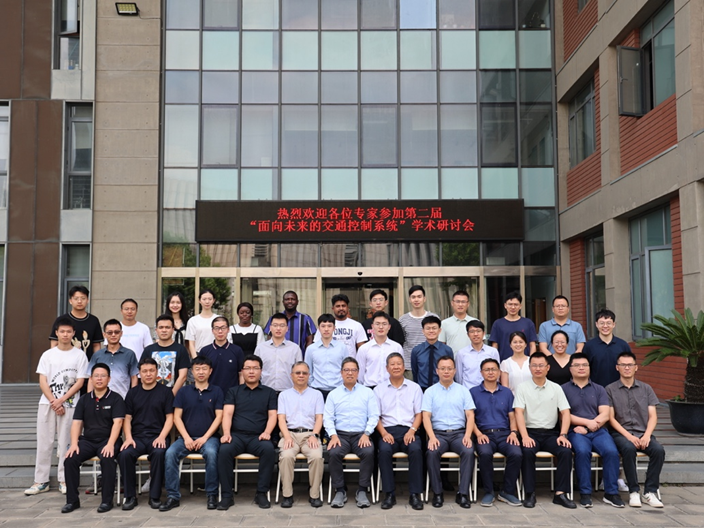
Professor Lo Kangjin will first present a keynote speech entitled "DISCO Dynamic Intersection Traffic Light Control and Optimization". Professor Luo first reviewed the development and general situation of Hong Kong's intelligent traffic control system, and then systematically introduced the control mechanism and project application of the DISCO system independently developed by his team, and finally proposed the innovative elements required for new traffic signal control and the future landing mode.
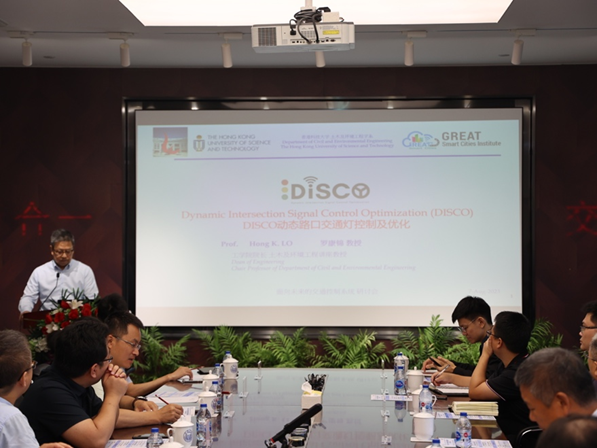
Professor Wang Dianhai presented a keynote speech entitled "The Future of Traffic Signal Control from the Perspective of Data". Professor Wang Dianhai first sorted out the six stages of the development of traffic signal control system from the traffic data, and analyzed the characteristics of traffic data and control system in different stages. Facing the future traffic control, Professor Wang proposed that the future traffic data will realize the full identification of moving targets and the full network tracking, so as to support the real-time coordination and adaptive hybrid traffic control system of the network. Professor Wang also pointed out that the essence of traffic control is to control people, not to control the car, so people-oriented active control is the key research direction in the future.

Professor Guan Jizhen will present a keynote report entitled "Intelligent Transportation System Technology Evolution and Future Trends". Professor Guan first systematically explained the evolution characteristics and future development trend of China's intelligent transportation system technology, pointed out the important changes in the development connotation and concept of intelligent transportation system in the development process, and finally concluded that the three characteristics of future traffic control system are generalized control, collaborative control and multi-objective control.
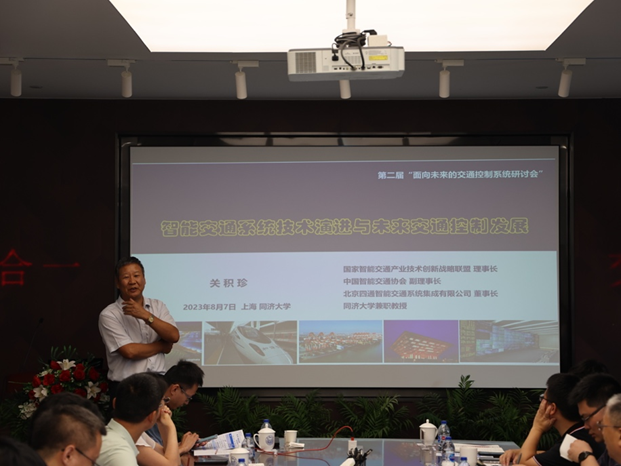
Associate Researcher Hua Jingyi presented a keynote report entitled "Research on Dynamic Response Control of Intersection Signal with sense-controlled Interaction". Dr. Jingyi Hua first introduced the optimization calibration method of phase level signal control characteristic parameters in detail, explained the dynamic response control strategy of cycle level iterative feedback signal, and introduced the construction of test environment and model verification effect. Finally, she put forward the thinking of hybrid traffic flow control for future different levels of automatic driving.
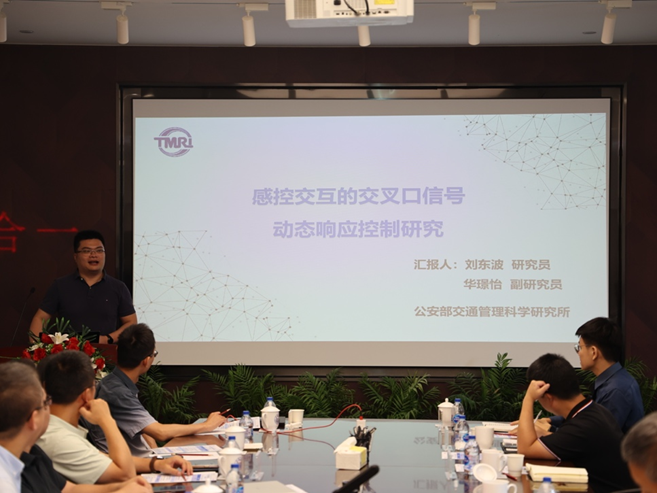
In the roundtable discussion, the participants had a broad and heated discussion on the current situation of the traffic control industry, the needs of enterprises and new opportunities for industry-university-research cooperation. According to the status quo of the industry, Dr. Song Zheng from Tencent and Dr. Nie Xiaojian from Baidu pointed out that the current development of the transportation industry is extremely dependent on the support of big data of geographic information and traffic operation, but the data quality varies greatly among cities; Dr. Zhou Xiaopeng and Dr. Zheng Jianfeng believe that the current traffic signal control system needs a perfect operation and maintenance mechanism, and the high accuracy rate and high return rate of traffic data are the key to further improve the quality of traffic control.
Facing the needs of enterprises, Vice President Ma Xiaolong from Hisense hopes that the transportation industry can establish a comprehensive and systematic industry standard, and strengthen the cooperation between enterprises through data open source; Dr. Chen Ningning from Zhenye Superior Control believes that the industry urgently needs a unified traffic control evaluation system, which is the basis for optimizing traffic control. And the participants agreed that the technical personnel of traffic control is still very scarce, and it is hoped that the talent training of colleges and universities can be more close to the actual scene.
In view of the new opportunities for industry-university-research cooperation, Dr. Xiang Junping from Jereh introduced the relevant progress of JerEH Electronics' application of traffic collaborative perception and control in a networked environment; Professor Guan Jizheng and Professor Wang Dianhai pointed out that industry-university-research cooperation should be demand-oriented, future-oriented and application-oriented, and through the deep integration of the three, traffic signal control can stimulate new vitality.
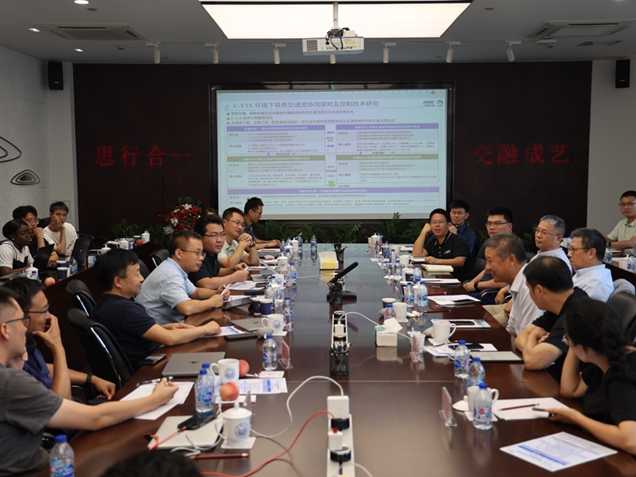
After the roundtable discussion, the participants moved to the Shanghai International Automobile City Building and visited the construction of Shanghai Shuangzhi City on site. The staff of the new energy data center first introduced the construction and opening of the data platform, and showed the four main functions on site. The participants had in-depth exchanges with Motor City in terms of data protocols, data quality and application effects.
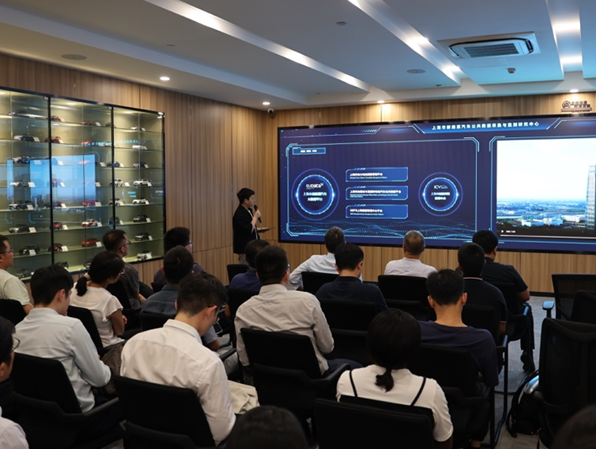
This seminar brought together a number of senior experts from academia and industry, from the dual perspective of traffic control theory and practical application, through special reports and roundtable discussions, brought a rich knowledge and forward-looking information, and promoted the theoretical research of traffic control system and industry-university-research cooperation.
On August 8, 2023, Professor Lo Kangjin, Dean of the School of Engineering, Hong Kong University of Science and Technology, and his team visited the Magic Subject Group of Tongji University for academic exchange. The participants of this academic exchange meeting include Professor Luo Kangjin and his team members, Magic research group Professor Ma Wanjing, Professor An Kun, Associate Professor Wang Ling, Associate Professor Yu Chunhui, Su Zicheng Distinguished researcher and research group students.

First of all, Professor An Kun introduced the research direction of Magic to Professor Luo Kangjin's team. Then, five Magic research group doctoral and graduate students respectively made academic reports, and accepted the guidance and comments of Professor Luo Kangjin.

Doctoral student He Ziliang gave an academic report entitled "Integrating Variable Speed Limit and Ramp Metering to Enhance Vehicle Group Safety and Efficiency for Expressways".

Doctoral student Li Jinjue gave an academic report entitled "Urban Arterial Control with Mixed Traffic Environment of Human-Driven Vehicles and Connected and Automated Vehicles".
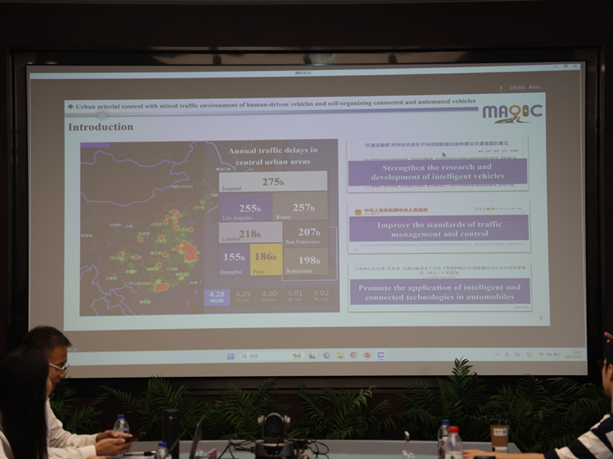
Doctoral student Niu Zhenning gave an academic report entitled "Research on Vehicle-to-Grid Enabled ChargingInfrastructure Planning and Operation Strategy".
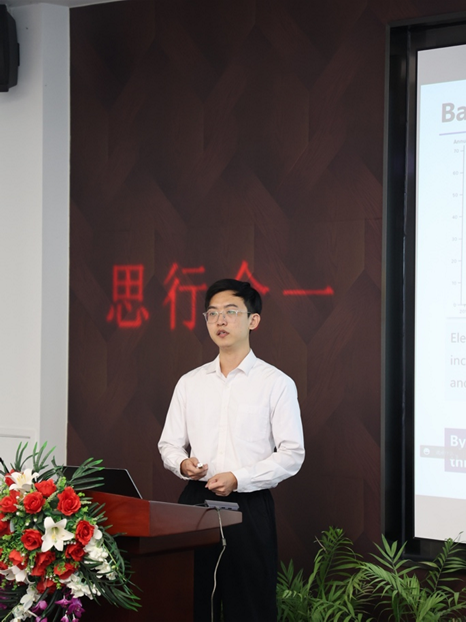
Doctoral student Ou Shiqi gave an academic report entitled "Multi-modal Intersection Control Considering Human Error from Connected Buses".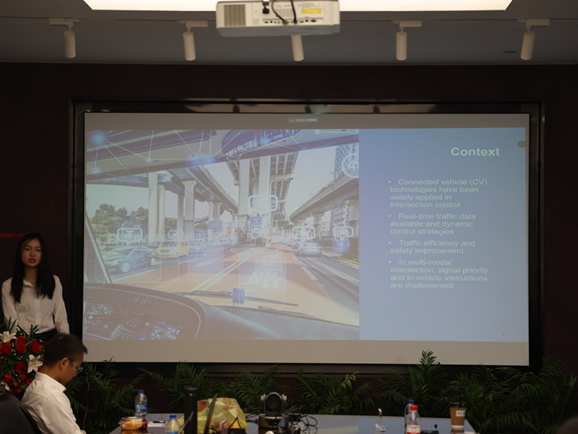
Doctoral student Wu Mian gave an academic report entitled "Impact Analysis of Buses and Ride-Hailing Competition on Travel System Performance".
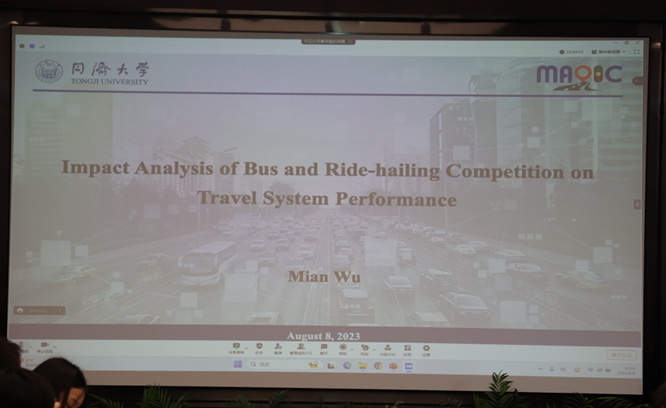
Before the end of the seminar, members of Professor Luo Kangjin's team commented on the research content of the Magic research group and published a message to the members of the research group. Professor Luo first affirmed the excellent achievements of the Magic research group in the field of traffic signal control, and believes that the research direction of the Magic research group can aim at the forefront of The Times, and has made a high-level research in the industry. At the same time, Professor Luo put forward further opinions on the existing research, he pointed out that in the traffic research, we should deeply understand the internal mechanism and logic of the classical traffic model, and on this basis, combined with the new characteristics brought by the new technology to explore; At the same time, when applying the new technology to the traditional model, it is necessary to fully consider the demand-oriented and scenario-oriented, so that the research can be close to the actual application and landing. The students who attended the meeting responded warmly and all said that they gained a lot. On behalf of the research group, Professor An Kun expressed his gratitude to Professor Luo Kangjin and his team, and looked forward to continuing to deepen the academic cooperation between the research groups.
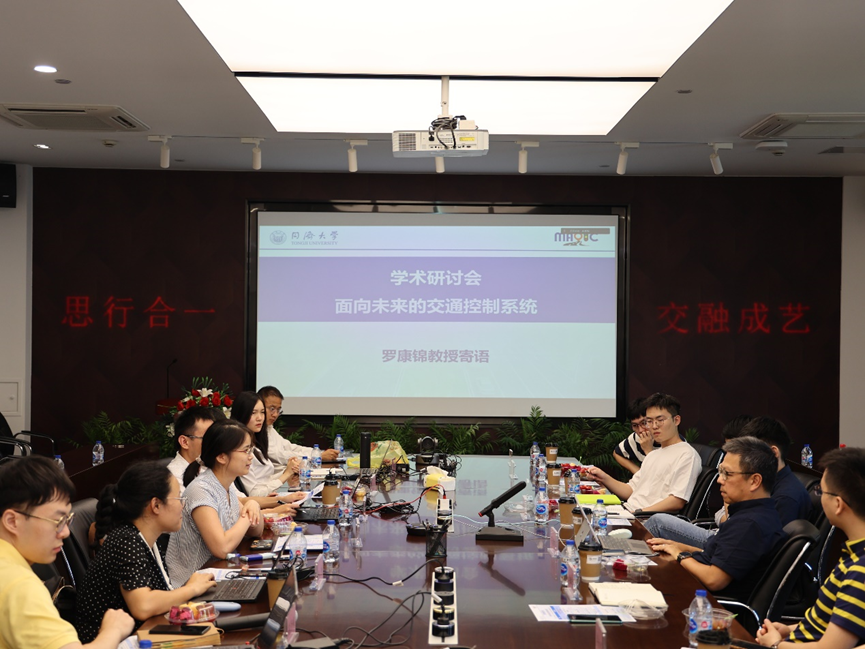
Text: Su Zicheng, Jia Zuoning
Photo: Jia Zuoning